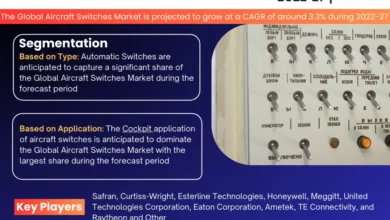
The heartbeat of any healthcare facility is its Revenue Cycle Management (RCM) billing system. It’s an all-encompassing journey that tracks the financial life cycle of patient care, from initial scheduling to the final payment. But why is RCM the linchpin of healthcare success? This crucial process ensures that providers are compensated for their services, which in turn, allows them to continue offering essential healthcare services.
Revenue Cycle Management (RCM) billing Services
The Challenges of Inefficient RCM Practices
Despite its importance, RCM is fraught with challenges. Traditional billing systems are often outdated and prone to human error, leading to a domino effect of billing inaccuracies, claim denials, and delayed payments. These inefficiencies can have a profound impact, not just on the bottom line but also on patient satisfaction and the overall reputation of healthcare providers.
Key Components of an Efficient RCM Billing Service
Accurate Patient Information and Insurance Verification
At the foundation of effective RCM is the need for meticulous patient information and insurance verification. This step is crucial; inaccuracies here can result in claim denials and delays further down the line.
Advanced Coding and Billing Compliance
The complexity of medical coding and billing cannot be overstated. Efficient RCM services ensure that coding is accurate and compliant with current regulations, which is vital for minimizing denials and audits.
Technology and Automation
With advancements in technology, RCM has been revolutionized. Automated claim submission and tracking streamline the entire process, reducing errors and speeding up reimbursements.
Technological Advancements in RCM Billing
The intersection of healthcare and technology has yielded significant improvements in RCM processes. Electronic Health Records (EHRs) have played a pivotal role in this transformation, allowing for seamless integration of patient data and billing. Moreover, AI and machine learning are making strides in predicting claim denials and streamlining the billing cycle.
The Financial Impact of Efficient RCM Billing Services
A robust RCM system can drastically reduce the rate of denied claims and improve the cash flow of a healthcare practice. By ensuring that claims are submitted correctly and promptly, providers can expect faster reimbursements, which is a key component in maintaining a healthy financial status.
The Operational Benefits for Healthcare Providers
Better Healthcare Delivery
An efficient RCM system allows healthcare providers to focus on what they do best – patient care. With administrative tasks streamlined, providers can allocate more resources to patient services and improve the overall quality of care.
Success Stories
Incorporating real-world examples of healthcare providers who have revolutionized their RCM processes can illustrate the tangible benefits of efficient RCM systems.
Patient-Centric Benefits of Efficient RCM
A patient-centered approach is at the heart of modern healthcare. Transparent billing practices not only foster trust between patients and providers but also enhance the overall patient experience. Patient portals and improved communication channels are essential aspects of a patient-centric RCM system.
RCM Billing Services and Compliance with Healthcare Regulations
Navigating the labyrinth of healthcare regulations is no small feat. Efficient RCM billing services are adept at ensuring compliance with laws like HIPAA, thus safeguarding against legal issues and promoting a culture of trust and reliability.
Outsourcing vs. In-House RCM Billing: Pros and Cons
The debate between outsourcing and maintaining an in-house RCM team is ongoing. Outsourcing can offer specialized expertise and flexibility, whereas in-house operations can provide more direct control over the processes. Weighing the pros and cons is essential for healthcare providers to make the best decision for their practice.
Best Practices for Selecting an RCM Billing Service Provider
Choosing the right RCM service provider is a crucial decision for any healthcare practice. Providers should look for a partner with a proven track record, exceptional customer service, and a commitment to staying abreast of the latest billing regulations and technologies.
Future Trends in RCM Billing Services
The future of RCM is dynamic and promising. From the use of predictive analytics to the shift towards value-based care, the landscape of RCM is evolving. Healthcare providers must remain adaptable to these changes to ensure their financial health and service quality.
Prioritizing the Patient Experience Through RCM
An efficient Revenue Cycle Management system is inherently patient-centric. The modern healthcare provider must recognize that a positive patient experience extends beyond the clinical encounter; it encompasses every administrative interaction – particularly billing and finance. By prioritizing patient convenience and support through RCM, healthcare providers can significantly enhance overall patient satisfaction.
Implementing Advanced Payment Solutions
The adoption of advanced payment solutions is a critical step forward in RCM. By incorporating technologies such as mobile payments and online billing portals, healthcare providers can offer patients the convenience of paying anywhere, at any time. This flexibility not only improves the patient experience but also accelerates the payment collection process, thereby improving cash flow for the provider.
RCM’s Role in Value-Based Care
The shift towards value-based care emphasizes the quality rather than the quantity of healthcare services. RCM services are pivotal in this transition as they align billing practices with patient outcomes. By focusing on the efficacy of treatments and patient health improvement, RCM can support the foundational goals of value-based care models, ultimately contributing to a healthier population and a more sustainable healthcare system.
Continuous Improvement for Long-Term Success
The healthcare sector is ever-changing, and RCM services must be adaptable to keep pace. Continuous improvement initiatives driven by feedback loops, performance metrics, and industry benchmarks can lead to incremental changes that have a substantial impact on RCM efficiency. Providers that commit to ongoing refinement of their RCM practices position themselves for long-term success and resilience in a competitive healthcare marketplace.
Embracing Transparency in Billing Practices
Transparency in billing is not just a regulatory requirement but a strategic advantage in healthcare RCM. Patients are increasingly seeking clear and upfront information about the cost of their care. By providing transparent billing statements that explain charges in layman’s terms, healthcare providers can build trust and reduce the anxiety associated with medical expenses. This transparency aids in preventing billing disputes and encourages timely payments, further optimizing the revenue cycle.
Strategic Patient Communication
Effective communication is the cornerstone of patient relations and RCM efficiency. Strategic patient communication involves educating patients about their financial responsibilities, insurance benefits, and available payment options before services are rendered. By proactively addressing these topics, providers can prevent confusion, minimize billing questions, and enhance the patient’s financial experience. Tailoring communication to individual patient needs also demonstrates a commitment to personalized care, which can lead to increased patient loyalty and retention.
Evolution of Healthcare: Enrollment and Credentialing
Conclusion
Efficient RCM billing services are more than just a financial conduit; they’re a critical component of a successful healthcare operation. Providers who embrace efficient RCM practices are setting themselves up for financial stability, operational excellence, and, most importantly, the ability to deliver exceptional patient care. It’s time for healthcare providers to assess and refine their RCM processes, for the sake of their patients and their practice’s longevity.


